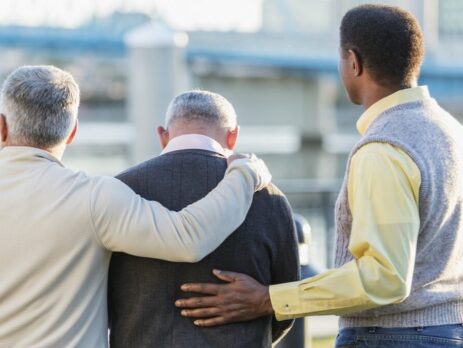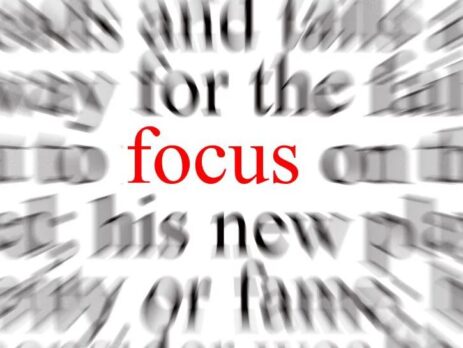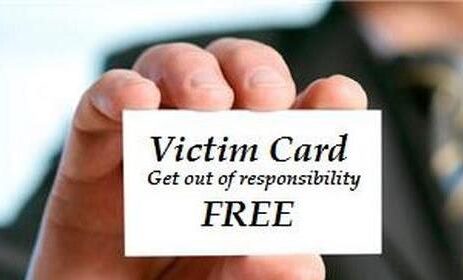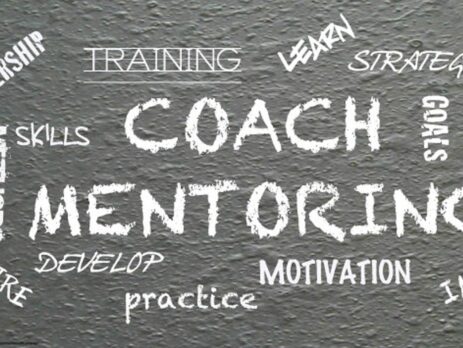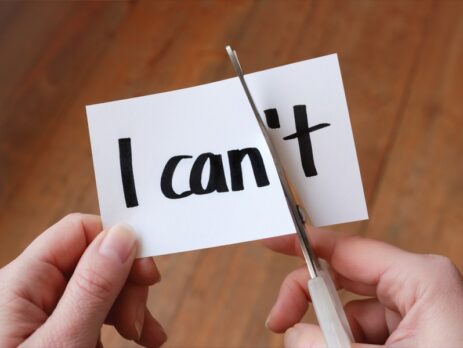
Is it just me, or does it seem like people in traffic are at their absolute worst, riding your rear-end no matter how far over the speed limit your already driving, cutting lane-to-lane without signals, weaving in & out of traffic at 80 or 90 mph, finally getting in front of you and giving you the one-finger salute?… and that’s just in the school-zone, right?… ok, ok, just kidding about the school zone, but you know what I’m saying.
Or how about the way your fellow diners have been since restaurants opened back up (depending on where you live), complaining while they wait in line for a table, being rude, impatient and downright crappy to the poor waitstaff that is trying to handle 3 times the normal number of customers they did in 2019, due to staffing cuts or employees deciding to stay home & collect stimmy checks, instead of working… and this behavior is also is true with most every type of service provider or supplier in general.
Many employers are now expecting more out of every employee they have left, to try to make up for the losses already realized, and service their clients as if they had a full crew… totally oblivious to the additional stress put upon those remaining few.
There is now actually an official name for that whole movement of people leaving the workforce, or at minimum switching jobs or careers… called “The Great Resignation” … really!
There have been sky-rocketing racial tensions between whites- blacks- Asian- police & first responders, all amplified by the news media on a daily basis.
The near-nuclear polarization between the political parties, liberals & conservatives has taken its toll on the American spirit & how people are treating each other, like I have never seen before in my life.
That’s not even counting the media-driven confusion & separation between us all on the mask-vs- no mask issue… or lately the vaccinate/ non-vaccination debates… OMG…. So many people are really on the verge of just snapping, that it’s scary as hell!
While there are already several “side-effects” of this Pandemic that we’re just now starting to realize (which have nothing to do with the medical aspect), there is one in particular that no one really saw coming… the severe lack of compassion… or more specifically… empathy…. empathy for our fellow human beings, is a direct result and large contributor to the conditions mentioned above.
The lack of empathy for our family, our friends, our coworkers or even the people we do business with every day, is like poison to the soul of everyone needing this basic human interaction from us.
At this particular point in history, we, as a collective group, need empathy NOW more than ever… and we’re finding it increasingly elusive.
Simply put… the need for empathy is at an all-time high, while the practice of providing empathy for those in need, feels to be at an all-time low.
But the good news is, we all have the ability to change that right now.
It doesn’t require a mask, a negative or positive test or a shot.
Just a little basic understanding of what it is, how, why & when to show empathy, and the willingness to be a good human.
Empathy is NOT something you are born with or without, it is not something you can’t access… it is truly available to everyone.
So, what exactly is empathy?
Isn’t that when I feel sorry for somebody, right?.… NO
That is sympathy… much different that empathy.
So, what is empathy? It’s the ability to understand another person’s thoughts and feelings in a situation from their point of view, rather than your own. It differs from sympathy, where one is moved by the thoughts and feelings of another but maintains an emotional distance.
Example:
Sympathy is to see someone in a deep hole, but remaining on higher ground and talking to them from above. The sympathetic person may also try to simply put a silver lining on the other person’s situation instead of acknowledging the person’s pain. Conversely, empathy is feeling with the person, it’s climbing down the hole to sit beside them, making yourself vulnerable to sincerely connect with them. The empathetic person will recognize the person’s struggle without minimizing it.
Real life example:
You run into a co-worker or a friend, and they ask “how’s it going”?
You are close enough with them to share you just had a death in your immediate family, and they say something like: “wow, sorry to hear that” … quickly followed by something like: “hey, I’d like to stay & chat, maybe we’ll catch-up later, but I need to get home, can’t miss the opening puck drop, tonight’s game is going to be INTENSE!”
Barely even sympathy…. As opposed to this:
Same opening statement from you, but they response is something like:
“OMG, that’s so sad, man you must be crushed… wow, hey I was on my way home, but how about if we go somewhere and talk, I’ll buy you a coffee/ or drink at the place on the corner, looks like you could use someone to listen!”
Now that’s more like being empathetic… and it’s not that hard to do.
Empathy is a skill that can be learned or improved, just like other abilities, although it’s true some people are born and raised with more empathy than others, it still can be improved upon at any point in life… much like getting in shape at the gym or dieting to lose some weight, it does take some mindful practice & persistence.
Now we know from our normal observations, that as a whole, women are a bit more prone to showing empathy than men, they have a stronger caring and nurturing side than their male counterparts, but that does not mean men aren’t empathetic or caring. They may just show up a little differently.
Much research has shown that women are more empathic than men. Yet, women and men are equally forgiving. However, it is not clear whether empathy is more important to forgiveness for men or for women.
But regardless of your gender, showing, providing or receiving empathy is a very essential HUMAN characteristic.
There are 3 basic forms of empathy… cognitive, emotional & compassionate.
 ? Cognitive: “Simply knowing how the other person feels and what they might be thinking. Sometimes called perspective-taking.”
? Cognitive: “Simply knowing how the other person feels and what they might be thinking. Sometimes called perspective-taking.”
If you imagine yourself in your friend’s shoes, you know she is likely to be feeling sad, as well as anxious because she relies on that income to pay her student loans. However, having only cognitive empathy keeps you at a distance from your friend. To truly connect with your friend, you need to share their feelings. This is where emotional empathy comes in.
? Emotional: “When you feel physically along with the other person, as though their emotions were contagious.”
This type of empathy can also extend to physical sensations, which is why we cringe when someone else stubs their toe. In this case, you would look inwards to identify a situation where you were similarly anxious about the future. The situation itself need not be identical, as each individual is different. What’s important is that the emotions resulting from the situation are the same.
So, you’ve successfully understood what your friend is feeling, and put yourself in a similar emotional space. Now what? Well, you can use the insights gleaned from Cognitive and Emotional empathy to have Compassionate Empathy.
? Compassionate: “With this kind of empathy we not only understand a person’s predicament and feel with them, but are spontaneously moved to help, if needed.”
It is the balance between Cognitive and Emotional Empathy that enables us to act without being overcome with feeling or jumping straight into a problem-solving process.
So, full disclosure… like most of us, I’m no angel… no where close to perfect… I have been VERY un-empathetic at times to many people, even my own family… my wife… even my kids…. Some days I have forgot that it’s NOT all about me, and those times I am truly sorry, but I know that’s not my nature… and I know it’s in my power to be better than that.
I’ve learned in over 30 years of directly selling & servicing collision center customers, when & how to show empathy. I have dealt with hundreds of technicians, managers, writers, CSRs and owners on a one-to-one basis, when they were having a bad day, or sharing a recent tragedy, or family problem with me, and I have been that guy that listens intently, doesn’t pass any judgement, puts my arm around their shoulders and “feels” their pain with them and then does my best with a smile… a bad pun, or a laugh, to help ease their pain or sorrow just a bit…. I have learned, in great detail, how to show empathy… and here’s the cool thing about doing that… the feeling I get every time I can do that for someone else… every time I can provide some empathy for another, and KNOW I might have helped them… just a little bit…. It makes me feel frick‘n awesome, and you probably know exactly what I mean if you have “been there” for someone that needed your “ear” or your empathy, right?
So next time you have the opportunity to help someone that has really gone through some shit…. Someone that’s a bit crushed right now (and God knows there’s plenty of those out there right now) and needs your “ear” or someone that needs you to get down in that hole with them for a few minutes and connect with them, so they don’t feel so alone & isolated by the shit-show we call mid-Pandemic life right now… put off what you were going to next, take some time to be “that person” for them… show some empathy, because besides helping another human when they need it most, it will make you feel great, and you never know… YOU may need someone’s empathy tomorrow… and wouldn’t you want to do that for you?
Rick Selover
Founder & Host of The Mind Wrench Podcast

